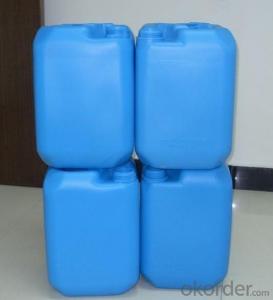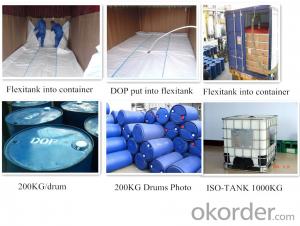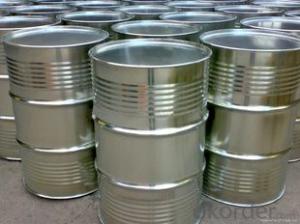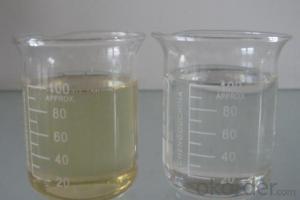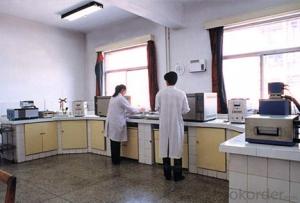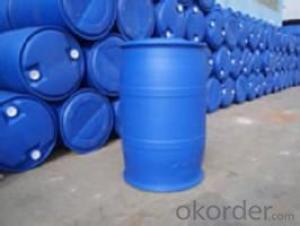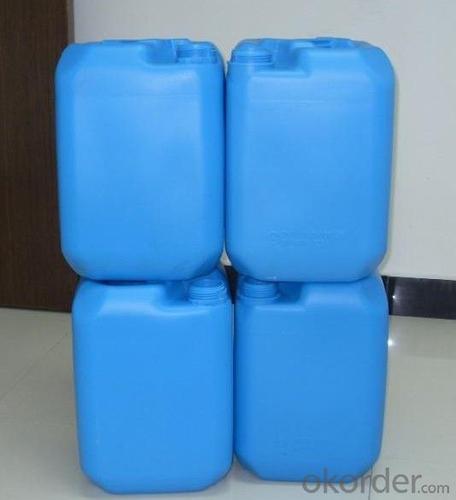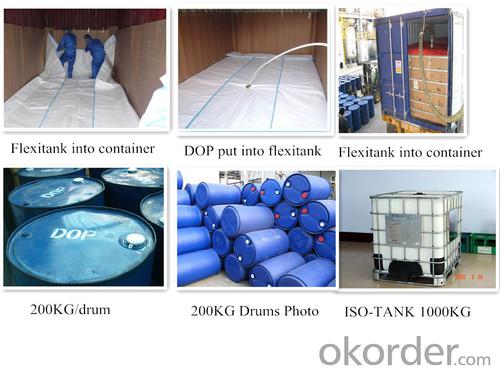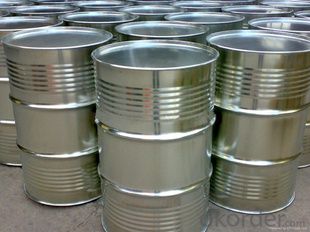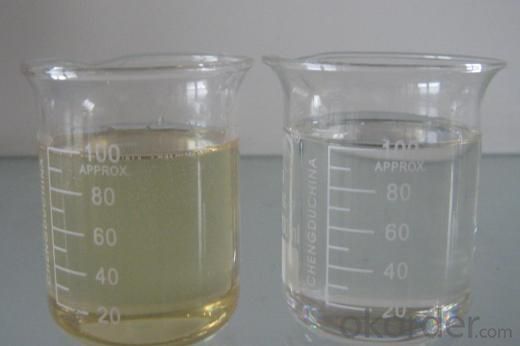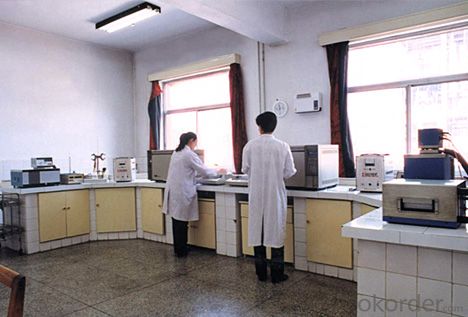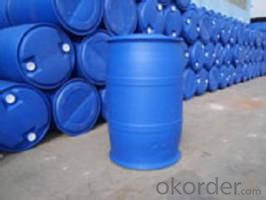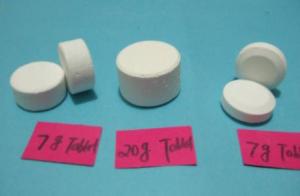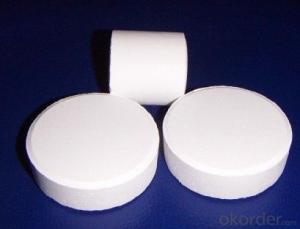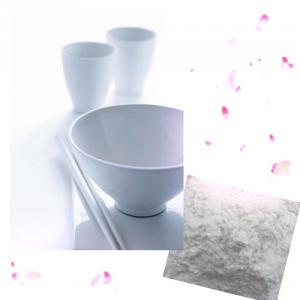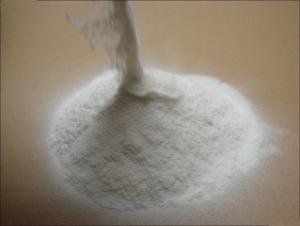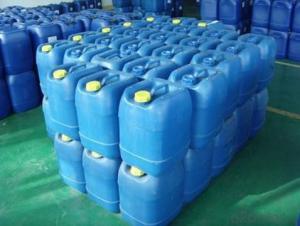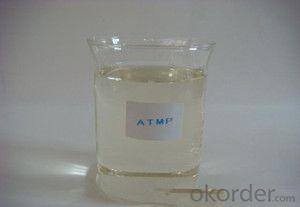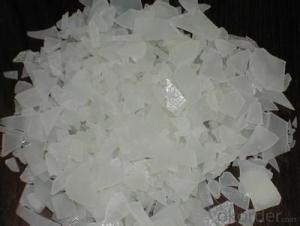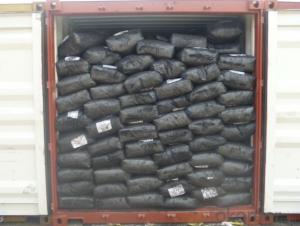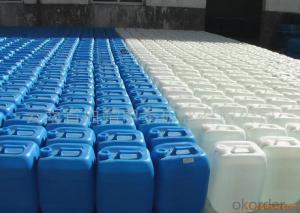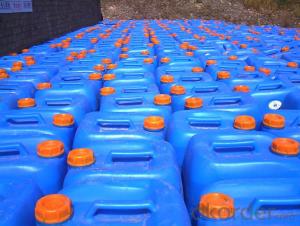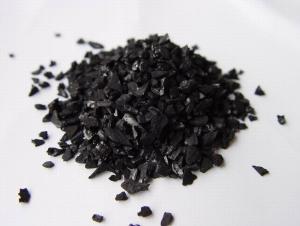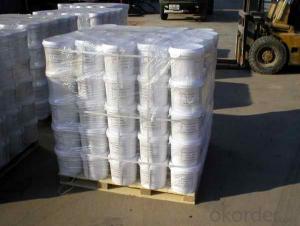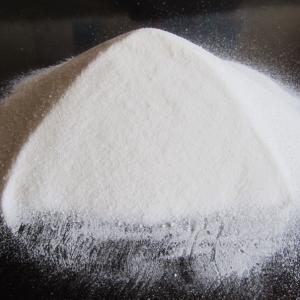Diethylene Glycol Dibenzoate, DEDB, DOP Substitute
- Loading Port:
- Tianjin
- Payment Terms:
- TT OR LC
- Min Order Qty:
- 16.8
- Supply Capability:
- 8000 m.t./month
OKorder Service Pledge
OKorder Financial Service
You Might Also Like
Product performance:
Polyol Benzoate (DEDB) is colorless or pale yellow transparent oily liquid, water-insoluble, soluble in aromatic hydrocarbons, ketones and ethers, and has good compatibility withpolyvinyl chloride, ethylene - vinyl acetate copolymer, poly vinyl acetate, polymethylmethacrylate, polyvinylbutyral, nitrocellulose, and ethyl cellulose, etc.
Product application:
Polyol Benzoate(DEDB) is an environmentally friendly plasticizer with the characteristics of strong solubility, good compatibility, low volatility,resistant to oil, water, light, pollution etc. It is suitable for processing PVC flooring material, plastisol, artificial leather, cable material, soft and hard pipe, shoes material, rubber strips, synthetic rubber, and paint, printing ink, etc. It has a better plasticized effect if it is used together withDOP or DBP, and has greatly achieved the purpose of reducing cost .
Product quality index
Item | First grade | Second grade |
Chroma(APHA) ≤ | 50 | 60 |
Ester % ≥ | 99.5 | 90.0 |
Density(20°C)g/ | 1.120-1.126 | 1.172-1.78 |
Acidity(as benzene dicarbonic acid) % ≤ | 0.01 | 0.02 |
Flash Point °C ≥ | 195 | 192 |
Loss on heat(125°C,2 hours)% ≤ | 0.3 | 0.5 |
Chroma after heat treatment | 80 | 100 |
Specifications
1. Direct producer with 15 years experience
2. ISO9001:2000
3. High quality, lower price and best service
4. New plasticizer
Packaging: IBM, net weight: 1000 kg.
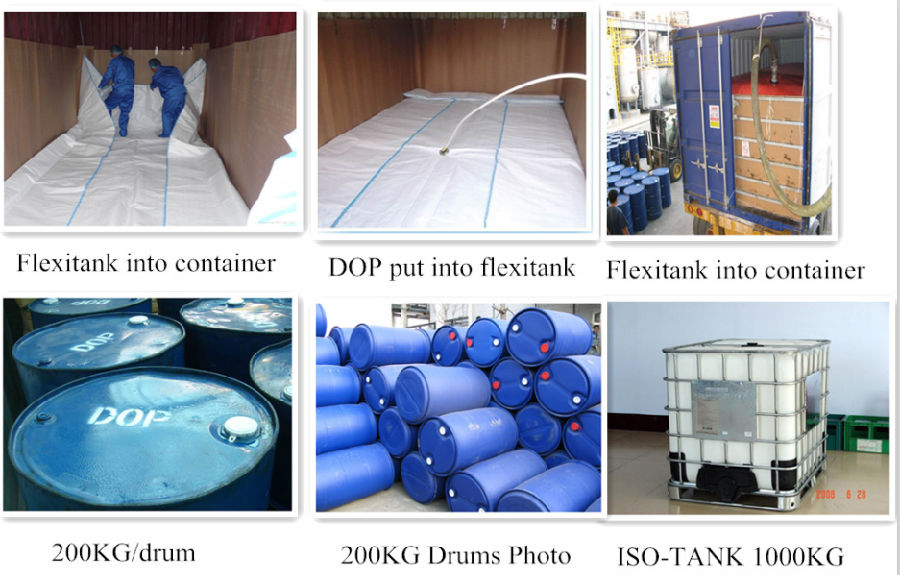 Our Factory:
Our Factory:
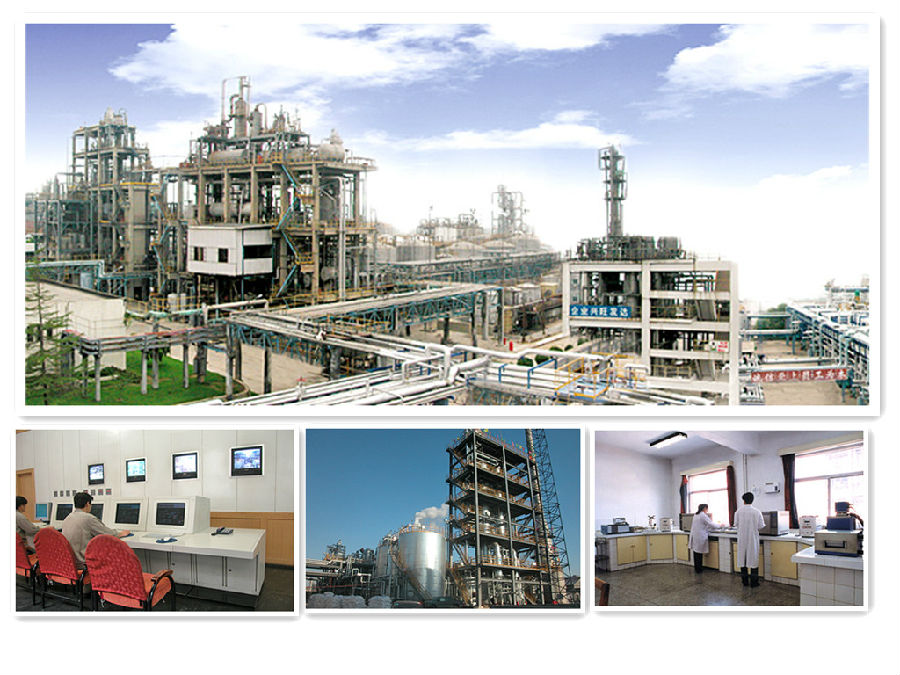
- Q: Is the catalyst considered a chemical reaction?
- But in fact the catalyst is in the process of the whole process of the catalyst involved in the reaction of the consumption of the catalyst but eventually produced a catalyst equivalent to no reference
- Q: High school chemistry, catalyst activation energy map
- Catalytic reaction is the reaction of the first reaction with the catalyst or attached to the catalyst to form intermediates, and then further reaction to produce products and catalysts, so the amount of catalyst in theory is the same! The activation of these two processes can be reduced! So there will be two peaks! Can be simplified as a peak!
- Q: Like biological and industrial reations. Thanks.
- Reactions that have high Activation Energy need catalysts to speed up reactions. These reactions aren't spontaneous since the reactants do not have enough energy to overcome the activation energy barrier. Catalysts are compounds that speed up reactions by providing an alternative pathway for the reaction. It is a common misconception that catalysts lower the activation energy. It doesn't actually lower the activation energy, instead it provides an alternative pathway with lower activation energy. For example, breakdown of hydrogen peroxide happens in nature but, relatively slowly. When you add a little bit of manganese dioxide, the breakdown happens a lot faster. Another example is, breakdown of glucose in the body. It is facilitated by an enzyme called amylase (or carbohydrase). An industrial example is the use of vanadium pentoxide (V2O5) in the Contact process, where SO2 is converted to SO3 in the presence of V2O5. Hope that helps!
- Q: what is metallocene catalyst technology?
- Metallocene catalyst A transition-metal atom sandwiched between ring structures having a well-defined single catalytic site and well-understood molecular structure used to produce uniform polyolefins with unique structures and physical properties. See also Catalysis; Coordination chemistry; Coordination complexes; Metallocenes; Organometallic compound. In the early 1980s, W. Kaminsky discovered that an appropriate co-catalyst activated metallocene compounds of group 4 metals, that is, titanium, zirconium, and hafnium, for alpha-olefin polymerization, attracting industrial interest. This observation led to the synthesis of a great number of metallocene compounds for the production of polymers already made industrially, such as polyethylene and polypropylene, and new materials. Polymers produced with metallocene catalysts represent a small fraction of the entire polyolefin market, but experts agree that such a fraction will increase rapidly in the future. See also Polymer; Polymerization; Polyolefin resins.
- Q: How does the catalyst affect chemical balance? Why the catalyst has no effect on the chemical equilibrium, for v-t diagram
- Chemical reaction to reactor molecules to reach a certain amount of energy in order to react, this energy is the activation energy of the reaction. While the material energy in nature can be obtained by probability statistics
- Q: Will the chemical catalyst not reduce that?
- Why is it done? Although the catalyst does not react chemically, the catalyst itself is deteriorated and is not always used
- Q: In the catalyst and light conditions to break down the water to get the chemical equation of hydrogen
- 2H2O = 2H2 ↑ + O2 ↑
- Q: how does the amount of a catalyst affect reaction rate?
- It's more the surface area than the amount, but, in general, the more catalyst exposed, the quicker the reaction will proceed.
- Q: Can the catalyst be a reactant in chemistry?
- There is also a saying that the catalyst participates in the chemical reaction. In a general chemical reaction, the effect of the catalyst is to reduce the activation energy required for the reaction to occur, essentially to turn a more difficult reaction into two, In the second reaction, the catalyst in the first reaction plays the role of the reactant, and the catalyst in the second reaction plays the role of the product, so that the catalyst is not present before and after the reaction Variety.
- Q: Manganese dioxide can be used as a catalyst for various chemical reactions
- MnO2 + 4HCl = heating = MnCl2 + Cl2 + 2HCl
Send your message to us
Diethylene Glycol Dibenzoate, DEDB, DOP Substitute
- Loading Port:
- Tianjin
- Payment Terms:
- TT OR LC
- Min Order Qty:
- 16.8
- Supply Capability:
- 8000 m.t./month
OKorder Service Pledge
OKorder Financial Service
Similar products
Hot products
Hot Searches
Related keywords
